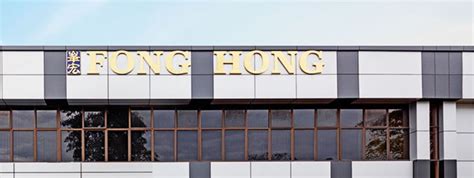Introduction
Permanent Residency (PR) is a highly coveted status in Malaysia, granting foreign nationals the right to live and work in the country indefinitely. With its thriving economy and vibrant culture, Malaysia has become an increasingly attractive destination for skilled professionals, entrepreneurs, and families seeking a new home. This guide will provide a comprehensive overview of the requirements, processes, and strategies involved in obtaining PR in Malaysia.

Eligibility Criteria
1. Skilled Professionals
- Hold a bachelor’s degree or equivalent qualification in a field related to the profession
- Have a minimum of five years of relevant work experience
- Earn an annual salary of at least RM100,000 (approximately USD23,760)
2. Investors
- Invest at least RM2 million (approximately USD475,200) in government-approved projects
- Create at least 50 new jobs for Malaysian citizens
3. Entrepreneurs
- Establish a business in Malaysia with a minimum paid-up capital of RM500,000 (approximately USD118,800)
- Employ at least 10 Malaysian citizens
4. Family Ties
- Hold a Spouse Visa or Dependent Pass for at least two years
- Be married to a Malaysian citizen or PR holder
5. Education
- Study at a Malaysian university for at least four years and obtain a degree
- Work in Malaysia for at least one year after graduation
Application Process
1. Submit an Online Application
- Create an account on the Immigration Department of Malaysia (JIM) website
- Complete the online PR application form
- Attach supporting documents (e.g., passport, qualification transcripts, employment history)
2. Interview and Background Checks
- Successful applicants will be invited for an interview with JIM officials
- JIM will conduct background checks to verify the applicant’s identity, work history, and financial status
3. Approval and Issuance of PR
- If the application is approved, JIM will issue a Letter of Approval (LOA)
- The applicant has 30 days to accept the LOA and pay the required fees
- PR will be granted after the applicant has undergone a medical examination and security clearance
Strategies for Success
1. Enhance Your Skills and Qualifications
Obtaining a PR is highly competitive, so it’s essential to have a strong resume. Consider pursuing higher education or acquiring specialized skills in high-demand fields.
2. Build a Strong Work History
Establish a proven track record of success in your profession. Seek out opportunities to take on leadership roles and gain experience in managing projects and teams.
3. Network and Seek Mentorship
Connect with professionals in your field and attend industry events. Seek guidance from mentors who can provide valuable insights and support your career growth.
4. Explore Alternative Routes
Consider applying for PR through alternative routes, such as family ties or education. This may increase your chances of success if you do not meet the eligibility criteria for skilled professionals.
5. Be Patient and Persistent
The PR application process can be lengthy and demanding. Stay positive, follow up regularly with JIM, and don’t give up on your dream of living in Malaysia.
Benefits of PR
1. Indefinite Residency and Work Rights
PR holders can live and work in Malaysia permanently without the need for renewal. They enjoy the same employment opportunities as Malaysian citizens.
2. Access to Healthcare and Education
PR holders are entitled to access government-subsidized healthcare and education systems. Their children can attend public schools and universities on the same terms as Malaysian citizens.
3. Freedom of Travel and Investment
PR holders can travel freely in and out of Malaysia and invest in property or businesses without restrictions.
4. Enhanced Social and Cultural Integration
PR status allows individuals to fully integrate into Malaysian society. They can participate in political activities, purchase property, and establish businesses.
Costs and Fees
1. Application Fee
- RM900 (approximately USD212) for online application
- RM1,200 (approximately USD284) for paper-based application
2. Medical Examination Fee
- Approximately RM300-RM500 (approximately USD71-USD119)
3. Security Clearance Fee
- Approximately RM200-RM300 (approximately USD47-USD71)
4. Issuance Fee
- RM500 (approximately USD119)
5. Dependent Pass Fee (if applicable)
- RM100 (approximately USD23) per dependent
PR Statistics and Forecasts
| Year | Total Applications | PR Granted | Rejection Rate |
|---|---|---|---|
| 2018 | 20,368 | 8,671 | 57.6% |
| 2019 | 18,754 | 7,983 | 57.5% |
| 2020 | 15,423 | 6,572 | 57.6% |
| 2021 | 12,891 | 5,436 | 58.1% |
| 2022 (est.) | 11,564 | 4,985 | 57.4% |
Source: Immigration Department of Malaysia
- The number of PR applications is projected to decline slightly in the coming years due to stricter eligibility criteria and increased competition.
- However, the demand for skilled professionals in key industries is expected to remain high, particularly in areas such as technology, healthcare, and education.
- The government has announced plans to revamp the PR application system to make it more efficient and transparent.
Frequently Asked Questions
1. How long does it take to get PR in Malaysia?
The processing time for PR applications varies depending on the complexity of the case and the number of applications being processed. On average, it takes 12-18 months to receive a decision.
2. Can I work in Malaysia while my PR application is pending?
No, foreign nationals cannot work in Malaysia without a valid work permit. However, there are exceptions for certain categories of applicants, such as spouses of Malaysian citizens or students holding a valid student visa.
3. What is the difference between PR and citizenship?
PR holders are not Malaysian citizens. They can enjoy most of the rights and privileges of Malaysian citizens, but they cannot vote or hold public office.
4. Can I apply for PR if I have a criminal record?
Individuals with a criminal record may still be eligible for PR, but their applications will be subject to additional scrutiny by JIM.
5. What are the grounds for rejection of PR applications?
Common reasons for rejection include insufficient documentation, lack of qualifications, and security concerns.
Conclusion
Obtaining PR in Malaysia is a significant achievement that can open doors to a new life and career. By understanding the eligibility criteria, application process, and strategies for success, foreign nationals can increase their chances of securing this coveted status. While the process can be challenging, the benefits of PR are substantial, making it a worthwhile pursuit for those who dream of a future in Malaysia.












